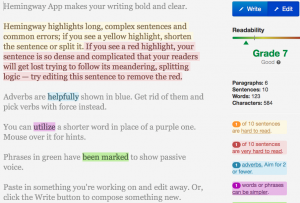Actually, you could do this with three and those would be:
1) Computer
PCs are cheaper, Macs are better. I vote Mac because I put a big value on the time I no longer have to spend piddling about getting Windows to damn well work. But Macs don’t suit everyone; if you like piddling, save yourself some bucks and get more geeky enjoyment with a PC.
But.
If you’re buying a PC, you have a million options and every one ends up with you having to make a choice between models that have some clear and obvious difference like a 1Mhz speed increase or something. Ignore salespeople, they will – seriously – just read you the spec sheet you were already puzzling over. Instead, ask a friend who has one, get their recommendation and then see if you can find it on the end of this Amazon UK link. That way, if it all works out for you, I get some pennies from your having bought this way and if it doesn’t, it’s your friend who gets your support calls. Everybody wins and it costs me nothing.
If you’re buying a Mac, you’ve fewer options and they always end up with you needing to make a choice between two very similar models. In all cases, save money by buying the cheaper processor speed and spend money on extra RAM and extra storage space. You’ll thank me later, which is nice as I am going to suggest an Amazon link – here it is, do check this out – but I also think you should go into an Apple Store and ask there.
If you’re looking at me like that for the bit about processor speeds and RAM, Apple Store staff will just tell you straight what Macs are good for and not so good for. They’ll ask what you expect to be doing with Mac: be honest. Tell them straight that you should be writing but you’re going to distract yourself with a photography habit that you only do to be social, that you can stop any time.
They will translate processor speeds – actually, no, they won’t bother translating, they’ll just tell you what it means in terms you can use. And Apple Store staff are not on commission so they’ll push this stuff but it’s more from genuine enthusiasm.
Last, if you’re havering between a laptop, desktop or tablet computer, they all work, they all do the job. You will just typically get more done on the desktop, you will be substantially freer with the laptop and the iPad will do everything, everywhere but you need to think about it more as you go.
2) Word processor
Microsoft Word if you have to, if it’s already on your computer or if you know you like it. Google Docs is fine, if a bit clunky looking. If you did buy a Mac, you’ve just got yourself a word processor called Pages and the odds are that you may never need anything else.
3) Email
How else are you going to deliver work? It’s also great for pitches. Just for god’s sake make sure you get a sensible email address.
Get and use these three and you’re away to the races. But I’d recommend two more:
4) Somewhere to track what and where and when your work is
I track invoices in the Numbers spreadsheet and jobs in Evernote. I track tasks in OmniFocus and I keep an eye on my week with Calendar in Mac OS X.
So this would be one of the five tools and I’m saying it’s – wait, counts on fingers – four different applications. Yes. You could do it all in your word processor though. And the time it would take you to pick up and figure out all these applications would probably be better spent at first on learning what your word processor can do. You’re smart, you can use anything but they all have nooks and crannies that are worth exploring for how they may be able to speed up your work.
When you know your word processor well, though, then start branching out into these others.
5) Kettle
Enough said.
